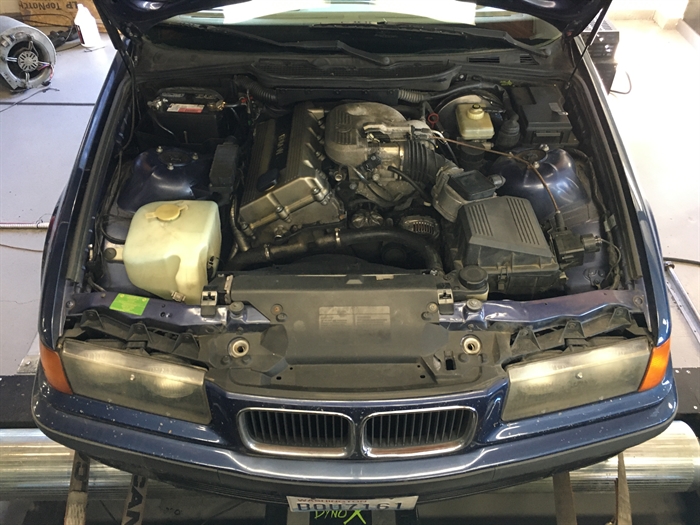Keeping Your BMW 318ti: Important Tips for Durability
Keeping Your BMW 318ti: Important Tips for Durability
Blog Article
Important Factors To Consider for Picking the very best Engine for Your Demands
In the world of picking the optimal engine to fulfill your demands, numerous important factors need careful consideration to ensure ideal performance and performance. From the nuanced balance between power and efficiency to the often-overlooked aspects of upkeep and solution needs, each element plays a crucial function in determining the most suitable engine for your particular needs.
Power and Efficiency
When evaluating engines for ideal efficiency, it is vital to focus on both power outcome and efficiency. Power result gauges the ability of an engine to produce energy, which straight impacts its performance. A high power output is important for requiring tasks such as heavy-duty applications or high-speed demands. It makes certain that the engine can deal with the work successfully and efficiently. Power alone is not adequate; effectiveness plays a considerable function in identifying the overall performance of an engine. Effectiveness refers to just how well the engine converts gas into usable energy. An extra effective engine will supply better gas mileage, reduced discharges, and minimized operating expenses. Striking the best equilibrium in between power outcome and performance is vital to selecting an engine that meets your details demands. It is vital to take into consideration aspects such as the meant use of the engine, ecological effect, and long-term price effects when making this decision. By thoroughly assessing both power and performance, you can pick an engine that supplies optimum performance and meets your needs successfully.
Fuel Effectiveness and Economic Climate
Fuel effectiveness refers to the engine's capability to convert fuel right into power with very little waste, straight influencing operating prices and environmental sustainability. Engines with higher fuel efficiency not only reduce gas costs yet also decrease carbon emissions, contributing to a greener operation.

Compatibility and Application
Considering the gas performance and economic climate of an engine, the next critical aspect to address is its compatibility and application within specific operational contexts. Compatibility describes how well the engine integrates with the overall system or tools it powers. It includes factors such as physical measurements, mounting alternatives, electrical user interfaces, and control systems. Guaranteeing compatibility is important to stop issues such as overheating, vibrations, or power inequalities (bmw 318ti).
Different engines are designed for certain functions, whether it be industrial machinery, aquatic vessels, cars, or power generators. Recognizing the desired application allows for the selection of an engine that can supply the necessary power output, torque, and operational attributes.
Upkeep and Solution Requirements
Maintenance and solution demands play an essential duty in guaranteeing the longevity and ideal performance of an engine. Routine maintenance is best site crucial to stop failures, expand the life-span of the engine, and maintain its efficiency. When choosing an engine, it is necessary to think about the supplier's advised maintenance schedule and the accessibility of solution facilities or qualified specialists.
Elements such as the frequency of oil changes, filter substitutes, and overall assessments can considerably influence the engine's efficiency. Some engines might call for even more constant servicing based on their design and use, while others may have longer intervals in between maintenance checks. It is crucial to stick to these service demands to prevent pricey repair services and unforeseen downtime.
Price and Spending Plan Considerations
When choosing an engine for a certain application,Budget restrictions usually play a substantial function in the decision-making procedure. When taking into consideration the expense and budget implications of picking an engine, it is important to assess not just the preliminary purchase cost however also the long-lasting expenditures connected with upkeep, fuel intake, and potential upgrades or repair work. It is vital to strike an equilibrium in between the ahead of time price of the engine and its total lifecycle expenses to make sure that the selected engine continues try this web-site to be monetarily lasting throughout its functional lifespan.
Aspects such as gas integrity, efficiency, and sturdiness can straight impact the total cost of possession of an engine. While an extra costly engine might have greater upfront costs, it could potentially result in reduced upkeep and gas costs over time, thus supplying far better worth in the long run.
Verdict

Gas performance refers to the engine's capacity to transform gas into energy with very little waste, straight influencing operating prices and environmental sustainability.Variables affecting gas performance consist of engine design, combustion effectiveness, and total performance optimization. Furthermore, selecting the ideal fuel kind and quality as advised by the engine maker can even more boost effectiveness and prolong engine life expectancy.
Engines with great utility functions and easily offered parts can lower maintenance costs and reduce the time the engine is out of procedure - bmw 318ti. It is vital to strike an equilibrium between the upfront expense of the engine and its total lifecycle costs to guarantee that the selected engine continues to be financially lasting throughout its functional life expectancy
Report this page